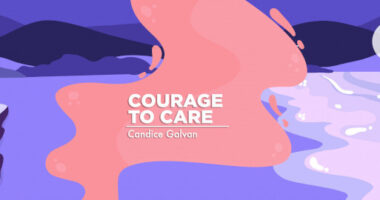‘NMOSD Won’t Stop Me’ survey highlights patient self-advocacy
Patients comfortable talking with their doctor more likely to have more good days

For one in three people with neuromyelitis optica spectrum disorder (NMOSD), bad days — marked by high levels of debilitating symptoms — are more common than good days.
Patients who are more comfortable talking with their doctors about their symptoms reported fewer bad days and greater treatment satisfaction compared with those who weren’t as comfortable.
These are among the findings of a patient survey conducted as part of Horizon Therapeutics’ “NMOSD Won’t Stop Me” campaign, which seeks to highlight the resilience of the NMOSD community in recognition of NMOSD Awareness Month, held each March.
Survey collected responses from 100 participants
A number of NMOSD advocacy groups collaborated on the survey alongside Horizon, including The Guthy-Jackson Charitable Foundation, The Siegel Rare Neuroimmune Association, and The Sumaira Foundation.
Responses were collected in December 2022 from 86 NMOSD patients and 14 caregivers answering on behalf of patients — a total of 100 participants — in an effort to understand how self-advocacy impacts quality of life for this patient population.
In terms of specific actions patients can take to advocate for themselves, most respondents said they already tracked daily symptom changes (70%) and did their own monthly research (67%). Fewer patients (47%) reported they actively participate in advocacy or support groups.
About two-thirds of patients indicated they were extremely comfortable speaking to their doctor about symptom changes lasting more than a day or two (67%), and how their symptoms affect their daily life (66%) and life quality (63%).
A third of patients said that bad days, such as those marked by high levels of pain, fatigue, depression, or other debilitating symptoms, outweighed good days.
My first healthcare team failed me, so it really forced me to become my own patient advocate and advocate for myself and be an educated patient.
Patients more engaged in their care report more good days, care satisfaction
Patients who had reported to be extremely comfortable talking with their doctor about symptoms were nearly twice as likely to have more good days than those not extremely comfortable discussing their symptoms. About two-thirds (76%) of them also reported they had more good days than bad.
Moreover, this group was nearly three times as likely to be very satisfied with their care compared with their less-comfortable counterparts, with 66% saying they were very satisfied with their treatment.
Overall, the findings highlight the potential health benefits of self-advocacy, as patients who were more engaged in their health reported more good days and greater care satisfaction.
A variety of resources are available on the NMOSD Won’t Stop Me website to help encourage patients to take charge, including a self-advocacy roadmap, NMOSD toolkit, symptom guide, and doctor discussion guide.
The campaign was launched in 2022 in collaboration with Christine Ha, the first blind contestant and winner of the third season of the television show MasterChef.
Ha’s blindness is caused by NMOSD, and while she’s been living with the rare disease for 20 years, it hasn’t stopped her from pursuing her goals. With a nearly complete loss of vision by 2007, Ha had to re-learn how to cook before going on to win MasterChef in 2012.
She’s now a well-known restaurateur, New York Times best-selling author, and entrepreneur, who travels the world to give TEDx Talks.
NMOSD patients tell their stories
The collaboration returns this year, and again encourages NMOSD patients to tell their stories. Ha’s narrative and several others further emphasize the theme of patient self-advocacy.
“My first healthcare team failed me, so it really forced me to become my own patient advocate and advocate for myself and be an educated patient,” Ha said in a video on the initiative’s website.
That was echoed in the stories of other featured community members, who agree that while they’ve had to adapt, NMOSD hasn’t stopped them from working toward their goals.
“I think what it means not to let NMO define us is to live beyond that and to look beyond that, and in my case, where there’s things I can’t do, look for new things that I can do,” said Doug, an NMOSD patient who had to re-learn how to walk after his diagnosis in 2017.
Another participant, Kim, who is a black belt in Taekwondo, said “NMO has not stopped me from dreaming… I’ve got to advocate for myself. I am my own Wonder Woman.”







